

Soundtracking Social Movements in the New Millennium
Our playlist Right to Assemble! sees music as an agent of change
To mark the launch of The Cube, Telekom Electronic Beats’ new immersive 360° digital experience exploring the facets of our culture over the past two decades, we look at the trends and stories that shaped the last 20 years.
Here we explore the tracks that defined and soundtracked major social movements around the world since 2000, looking at how music inspired and mobilized positive change, and vice versa.
Music industry veterans often say, “If you remember the ’90s, you weren’t there,” hinting at a long-gone era of debauchery and carelessness. Electronic music also went through a rollercoaster over the decade; house grew from the vibrant Black and Latino queer nights of Chicago to reaching worldwide phenomenon status; techno built a post-industrial bridge from Detroit to Berlin; Ibiza went from new-age hippy shelter to globally-marketed dancefloor for the 1%. Travelling sound systems hit the roads across the Old Continent, capturing the imagination of ravers with the collective ideals of the free-party movement. Gabber happened. By 1999, the genealogical tree of electronic music had grown a dazzling amount of branches, spreading across underground and mainstream. And perhaps some felt that the political bite of the early days had loosened up in the process. Don’t we all like a “good old days” story? Reality is usually more nuanced.
By the naughties, had electronic music lost its power to mobilize and inspire social change to individualistic hedonism? In hindsight, and as recent news headlines adopted the concept of “rave revolution” to illustrate the undeniable political force of techno, the past 20 years seem to tell a different tale–a radical one. Music tells the story, and sometimes music makes history. With this non-exhaustive selection, we dive into the tunes that soundtracked key social movements and protests around the world since the birth of Telekom Electronic Beats in 2000.
This element will show content from various video platforms.
If you load this Content, you accept cookies from external Media.
In 2001, the striking image of the collapsing towers of NYC’s World Trade Center shook the world for years to come. By 2003, the US and Great Britain prepared to send troops to Iraq on flaky theories of mass destruction weapons. To oppose the looming conflict, six to eleven million people turned out in at least 650 cities around the world. To this day, it remains the largest protest in history.
One of the biggest peace rallies happened in London’s Hyde Park, where a number of pop stars and musicians were seen, including Robert del Naja from Massive Attack. A quick look at the album the Bristol-born legend released a month before the protest, and the tune ‘A Prayer for England’ shines through as a topical cry for peace: ‘Let not another child be slain / Let not another search be made in vain’, beg the lyrics carried by Sinead O’Connor–one of the rawest engaged voices of the 90s.
The massive protest was ignored by the British parliament, tinting a whole generation with a feeling of profound democratic disillusion. But on the global stage, it pushed the UN to firmly stand against the war, thanks to this transnational movement of resistance that the New York Times then called “the second super-power.”

Click on the button to load the content from spotify.
By the mid-2000s, house music had crossed over to gentrified territories, with little left of its Black, queer and latinx originators in the spotlight. Four years before Disclosure’s inoffensive version of deep house took the world by storm, the genre had lost a bit of its edge. But American trans artist Terre Thaemlitz had other ideas.
Finding her chosen family in the underground realms of NYC in the late 80s, by the 2000’s the producer had become a respected name in her field. Her first LP under the moniker of DJ Sprinkles, Midtown 120 Blues, is as radical as unapologetic, lifting the veil on the myth of house as an utopia of diversity and acceptance. Its masterful blend of ambient, sound design and musique concrète makes it a striking house music manifesto.
Years before cultural appropriation became a hot topic, ‘Ball’r (Madonna-free Zone)’ explicitly addresses the necessity to look behind the marketed narratives of our times to give justice to original creators. There she raises her voice against Madonna, whose “decontextualized, reified, corporatized, liberalized, neutralized, asexualized, re-genderized pop reflection” of the ballroom scene did a poor job at portraying the scene’s origins, and left the mother “who actually taught [Madonna] how to vogue” in poverty.
She’d taken a very specifically queer, transgender, Latino and African-American phenomenon and totally erased that context with lyrics about how “It makes no difference if you’re black or white, if you’re a boy or a girl.
This element will show content from various video platforms.
If you load this Content, you accept cookies from external Media.
In 2011, after years of austerity, David Cameron’s Britain exposed its bleak underbelly. A protest against the police shooting of a young mixed-race man, Mark Duggin, escalated: for five days in a row, the disinherited youth of England exploded in anger against police violence and rising inequalities, burning cars and looting nearby shops.
We’re just bloody broke in Britain
This element will show content from various video platforms.
If you load this Content, you accept cookies from external Media.
Before #metoo, M.I.A soundtracked the bubbles of the global awakening for female empowerment and third-wave feminism. The music video of ‘Bad Girls’ directed by Romain Gavras was shot in Ouarzazate, Morocco. It stands in solidarity with the “women to drive movement” led by resistant Saudi women who are denied the right to drive motor vehicles on public roads, and hit by harsh prison sentences. Her global-reaching success paved the way for a young generation of unconventional women of colour to follow, like FKA Twigs or Azealia Banks.












By loading the content from Bandcamp, you agree to Bandcamp's privacy policy.
Learn more
In 2014, during the epic wave of protests in Ukraine, the shocking repression of the “Revolution of Dignity” led to the overthrow of the government. Citizens in Kyiv were locked down at home, a historical moment “really similar to those first months of pandemic lockdown in March-April 2020. But with gunshots,” describes local artist Voin Oruwu, who took part in the protests and condensed his anger and fear in the studio.
Invited two years later to perform live at the now legendary Cxema party under the Gavan bridge, he opened his set with ‘Amplification’. The crowd’s response was overwhelming: over 3 000 people cheered in ecstasy in the first seconds of hearing the record, and the track became an anthem of freedom for a generation of Ukrainian ravers.
This element will show content from various video platforms.
If you load this Content, you accept cookies from external Media.
Afro-American DJ and producer Theo Parrish expressed his frustrations at the trigger-happy police with his ‘American Intelligence’ LP, contemporary of Kendrick Lamar’s ubiquitous ‘Alright’. Lifted from the album released in 2015, ‘Welcome Back’ samples what it is like to be constantly pulled over by the police in one’s car.
At the time, the juries had not yet ruled in favour of the white policemen who had killed unarmed Black men Michael Brown and Eric Garner. But the context of blatant racial injustice makes it difficult not to see the title as a fiery satire of the systemic racism in America, and an illustration of the growing revolt that fuelled the Black Lives Matter movement.

By loading the content from Bandcamp, you agree to Bandcamp's privacy policy.
Learn more
Paula Temple released her track ‘Gegen’ via her imprint Noise Manifesto in 2014, at a time the German term was being widely used by protesters during an upheaval of asylum seekers in Germany.
“As refugees are fleeing for their lives, it is shocking we are creating similar conditions and hateful rhetoric as what happened in 1930s pre-WWII for political gain,” explained Temple in an official statement. “My personal hope is in our efforts to diminish the climate of hate with an overwhelming climate of empathy.”
Freedom of movement is not granted for everyone
To complement her initiative, Berlin-based band Hyenaz released a special edit layered with fierce punk vocals, and both acts committed to personally double the sales. The collected funds went to the Berlin O Platz Refugee Movement–an organisation providing help to refugees and fighting for their rights.
This element will show content from various video platforms.
If you load this Content, you accept cookies from external Media.
The queer feminist activist, member of the Female:Pressure network, regular DJ at beloved Berlin parties Gegen, Pornceptual, or Buttons, wrote her first LP during a coveted residency at the Underground Resistance HQ in Detroit, with the Berlin-Detroit Connection founded by Mike Banks and Dimitri Hegemann.
It’s not possible to effectively create radical consciousness by focussing on a single issue
For her 12’’ ‘The Movement’, she sampled an interview Black activist and academic Angela Davis gave on the show Democracy Now!: “Intersectionality of struggle is central to social progress, and you can’t possibly pick and choose your fights when it comes to discrimination. It was important to remind people that you can’t fight transphobia without fighting colonialism, patriarchy and capitalism, and that struggles are interconnected. Hence, Angela Davis speaking on the relationship between Ferguson and racist police brutality–which every leftist agreed was an outrage–and what is going on in Palestine–which every leftist in Berlin silenced by blacklisting artists speaking out about it like myself,” regrets the artist. The result, “a political body of work to reclaim techno and clubs as political spaces,” came out in 2018 to critical acclaim.


This element will show content from various video platforms.
If you load this Content, you accept cookies from external Media.
In 2018, the international community turned its eyes to Georgia, where hundreds of heavily armed special forces stormed local clubs Bassiani and Cafe Gallery–a gesture of intimidation against the values of freedom, liberalism, and tolerance that clubs have come to embody in a country dominated by the ultra-conservative.
It led to a wave of protests outside the Parliament, where people raved for several days, united by the slogan ‘We Dance Together, We Fight Together’. Worldwide news media attention ensued, and this track by local artists Berika and L8 soundtracked the BBC News documentary reporting on the “rave revolution”–a decisive landmark in the historical union between dance music and protest.
By loading the content from Bandcamp, you agree to Bandcamp's privacy policy.
Learn more
In 2019, an exhausted nation took to the streets to express its anger at the failing Lebanese state. The Beiruti underground scene leaned in, and a number of protagonists took part in the protests: DJ and producer, and founder of Factory People Jade was one of them. Galvanised by the energy, he went to remix one of the leading protest songs of the time: Mashrou Leila’s Lil Watan, “the song that defined this period,” according to him.
“The lyrics are so real, so touching, so powerful, so well written… I cannot think of another song that was as relevant and that got played by many, shared in videos with crowds carrying the flag in a lot of parties.” The remix was released on the Lebanese label Thawra Records–which incidentally means revolution, even though it was founded before the protests.
This element will show content from various video platforms.
If you load this Content, you accept cookies from external Media.
In October 2020, the Strajk Kobiet (“Women’s Strike”) started in response to the tightening of already stringent abortion laws in Poland. “Techno protests” quickly became an active part of the abortion rights marches regularly gathering hundreds of thousands people in the streets of Poland. A cohort of electronic musicians directly involved in the movement has taken part, which deserved a playlist in itself.
I felt that overwhelming atmosphere of fear and anxiety mixed with anger, but also some hope […] to change something
One of their most recent releases is ‘Rewolucja’ by Bess, a newcomer graduated from Instytut Dźwięku (“Institute of The Sound”)–the producer academy connected to the revered Polish techno institution Instytut. Using footage from the movement, its explicit music video illustrates the driving force of what is now called the “Polish Stonewall.”
To discover the rest of our selection and future protest music updates, follow us on Spotify:
Click on the button to load the content from spotify.
enter The Cube.
Published July 30, 2021. Words by Marie Dapoigny.












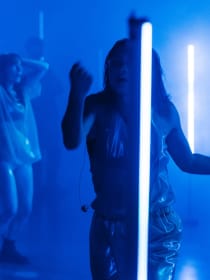















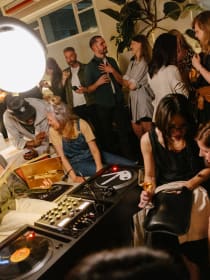











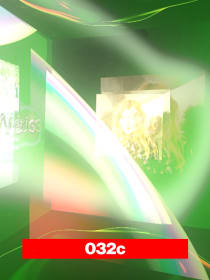



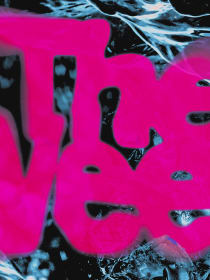





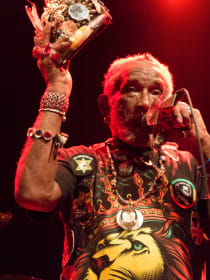































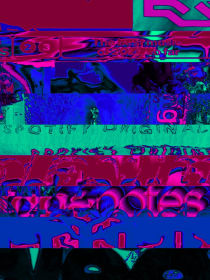













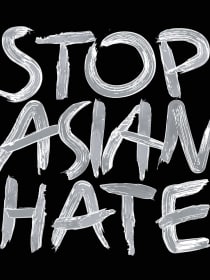



Follow @electronicbeats